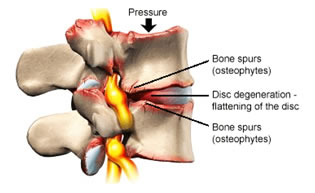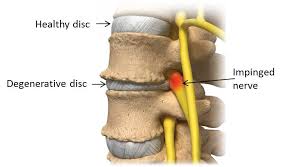Often, we see patients that come to our office saying they have been diagnosed with a pinched nerve, or feel they have a pinched nerve. A pinched nerve can show itself through many symptoms. In each case, there is something wrong, and the nerve is irritated, being compressed from inflammation, or being pinched by the vertebrae.
A pinched nerve can occur anywhere along the spine (cervical spine = neck, thoracic spine = upper to mid back, lumbar spine = lower back) and any joint throughout the body.
Some of the Symptoms of Pinched Nerves.
- Pain though out the spine
- Intense headaches or migraines
- Pain going down the arm or leg
- Numbness, tingling, or burning sensation in the arms, legs, or even into the fingers and toes
- Neck Pain
- Low Back Pain
A pinched nerve can make someone less mobile, it may also cause them to have trouble sitting for long periods of time, and then have trouble standing from being in that position. A pinched nerve can also cause someone to have problems bending, and even sleeping certain ways. An irritated or pinched nerve can cause muscle spasms on top of pain. Because the nerves control the body by sending signals to the internal organs and muscles, when someone has a pinched nerve their body can’t communicate and heal itself, this can lead to other health problems.
You might be wondering, “So, how did I get a pinched nerve?”
Well, there’s a couple possible reasons.
- Subluxation or Misalignment can cause a Pinched Nerve
A subluxation is a misalignment of a spinal bone (vertebra) that compresses a nerve. This causes that nerve to be unable to complete the body’s communication process – leading to other health problems. - Disc Degeneration can cause a Pinched Nerve
There is a small piece of cartilage between each vertebra, these are known as “discs.” Sometimes the disc begins to degenerate due to stress. When a disc starts to degenerate, the small space a nerve has to threat through is made even smaller, resulting in a pinched nerve.

- Osteoarthritis can cause a Pinched Nerve
Osteoarthritis is better known as degenerative joint disease. Osteoarthritis can cause bone spurs to grow, which can cover the small hole the nerve already has to go through, and much like disc degeneration, causes the nerve to be pinched. - Disc Herniation or Protrusions can cause Pinched Nerves
Numbness, tingling, sharp, shooting pain down the arm or leg is an indication of a disc herniation or protrusion. When a disc protrusion and herniation occurs the disc material pushes against the nerve. In the neck these nerves travel into the hands and in the lower back they travel down to your feet. This is typically referred to as a pinched nerve.
It’s important to understand that anyone of these 4 basic causes of a pinched nerve are typically silent in nature during the early stages of progression. Many people have no symptoms during the early stages and that’s why it’s important to regularly visit your chiropractor in order to determine the health of your spine. Pinched nerves can result from any combination of these, they can even all happen simultaneously.
How Chiropractic care at Tuckahoe Family Chiropractic can help.
Chiropractic care for a pinched nerve includes re-aligning the spine to get you back to optimal health. There are so many stress factors that take place that can cause a pinched nerve, and chiropractors specialize in reducing that stress to treat pinched nerves as well as prevent them.
Why Chiropractic for Pinched Nerves?
Chiropractic care is a healthy, natural, and conservative approach to allow your body to heal. With chiropractic, you won’t be put through unnecessary surgeries or be put on harmful medications. Through gentle adjustements, chiropractic lets your body do it’s job. Your body wants to heal itself, you just have to let it.
Call us at 804.740.3434 if you or anyone you know has a pinched nerve, as leaving it untreated can lead to serious health problems. If you found this article beneficial, please recommend it to your friends and family.

